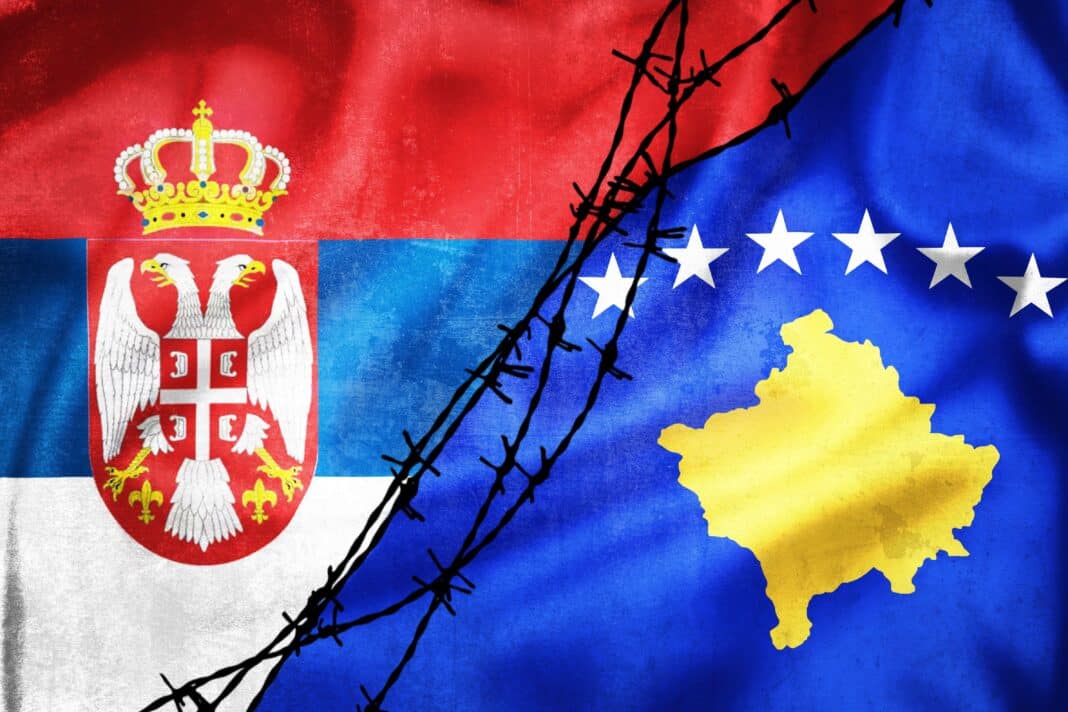The build-up of Serbian armed forces on the Kosovo border is not what it seems, with Serbia alleging that ‘defence personnel’ were guarding against timber traffickers – who regularly “smuggled illegally cut wood” from Central Serbia into Kosovo before being sold into global markets.
That is according to the Serbian Ministry of Defense, which is now accusing Albin Kurti, Kosovo’s Prime Minister, of “continuing the disinformation campaign against the Serbian army and security forces.”
“Members of the armed forces are seen in the land security area performing regular tasks per the military-technical agreements and all other agreements – security authorities stopped the illegal activities of transporting timber in the territory of Kosovo, with the timber thieves fleeing to Kosovo,” according to the Serbian Ministry of Defence, which comes amid accusations that Serbia has been provoking tensions by moving troops to about 50 meters from the border with Kosovo.
“The so-called security forces that Kurti mentions are, in fact, smugglers of illegally felled timber from central Serbia, which has become a lucrative illegal business.”
It comes as tensions between the two countries have escalated in recent months, exacerbated by a new rule that designates the euro as the sole legal currency in Kosovo, effectively banning the use of the Serbian dinar. More than 25 years after the Kosovo War, Belgrade – which has never recognized the independence of Kosovo – continues to finance a separate health, education, and social security system for the ethnic Serb minority.
Last month, Maria Zakharova, a spokesperson for the Russian Ministry of Foreign Affairs – a long-time supporter of Serbia, expressed strong support for Serbian President Aleksandar Vučić to return Serbian forces to Kosovo under UN Resolution 1244 – adopted in June 1999 in the aftermath of the War.
Is illegal logging and timber trafficking a problem in Serbia?
According to Forest Trends, Serbia remains a “medium risk” of illegal deforestation and associated trade. FSC—the world’s gold standard for forest certification—is launching an investigation into the trade of Birch plywood through Serbia, China, Russia, and several Eurasian countries.
“Serbia’s forests face a triple threat: illegal logging, commercial logging, and a stalling reforestation campaign,” according to Nikola Đorđević, a journalist for Emerging Europe, with data obtained from Serbia’s State Audit Institution (SAI) revealing 87,735 cubic metres of wood were obtained illegally from state forests between 2017 and 2019.
“The actual scope of illegal logging is far greater,” says Goran Sekulić of World Wildlife Fund (WWF) Adria. “When it comes to illegal activities in nature, illegal logging is the hardest to uncover,” says Dragana Arsić of the Defend the Forests of Fruška Gora movement.
“There is no official data on the amount of illegal logging. That it exists is an indirect conclusion through the sale of firewood on the black market,” they said.






